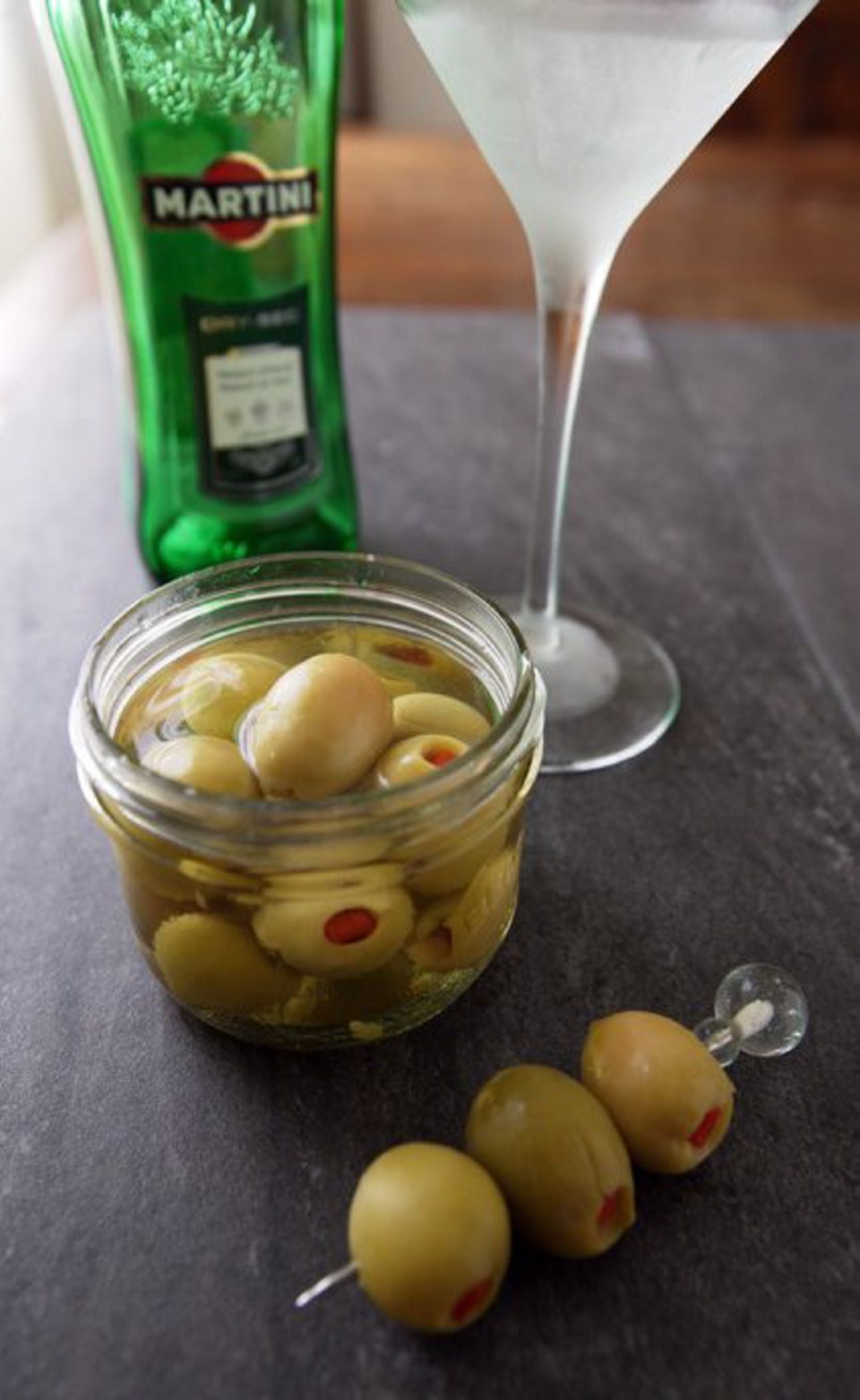 Dear Eric: My question is: What to do with olives that I use in my martinis? I find that after I open a jar and place it in the fridge, the olives become rubbery and don’t taste as good when warm. Seeing that one buys bulk olives on a counter and the jar doesn’t say refrigerate after opening, can I leave it on my Tiki Bar without my guests getting sick?
Dear Eric: My question is: What to do with olives that I use in my martinis? I find that after I open a jar and place it in the fridge, the olives become rubbery and don’t taste as good when warm. Seeing that one buys bulk olives on a counter and the jar doesn’t say refrigerate after opening, can I leave it on my Tiki Bar without my guests getting sick?
Robert
Olives, the oily oval fruit of the olive tree, have been consumed for millennia and are native to the Mediterranean region.
Over the centuries, methods were developed to help preserve those olives so they could be enjoyed months after they were harvested and also become less bitter tasting during the process. Those methods are still used today and include such things as curing and brining.
For example, one method for making Greek Kalamata olives sees the fruit cured in wine vinegar and herbs and fermented for many months in a saltwater brine to leach out their bitter taste. This practice was going on long before refrigeration, so how could the olives be safely stored after brining without that convenience?
In the Q&A section of Krinos Foods’ website, , the Mediterranean food seller provides an answer. Do jars and tubs of olives need to be refrigerated after the container is opened?
The company said no, if they are handled correctly. That means if the olives are kept submerged in their brine and kept out of heat and direct sunlight, they will last up to six months at room temperature.
This seems completely logical to me, and I have stored olives this way with no ill effects. However, other sellers of olives disagree and say you should keep them refrigerated once opened. Instructions to do that are right
on the jar.
That said, there does seem to be consensus that olives sold in tubs or from an olive bar where you scoop some into a tub, with little or no brine to keep them preserved, should always be kept refrigerated. There also seems to be consensus that marinated olives should always be refrigerated.
For example, on the Krinos website, they do say that unlike olives in only brine, olives marinated with other ingredients should be refrigerated after opening.
And I would put stuffed olives in that category, as the pimento, or other stuffing, such as garlic, is an ingredient I would want to keep refrigerated, brine or no brine.
I have been in bars where the stuffed olives being used simply sat out at room temperature and the same customers happily slurped back the martinis made with them week after week. But those places used a lot of olives.
Robert, if you are not going through them that quickly, to be on the safe side, if you’re using stuffed olives, I would keep them refrigerated until about two hours before cocktail time.
At that time, take some out and let them warm to room temperature before you shake or stir your first martini.
Vermouth-marinated olives
After at least two days of marinating in vermouth, the stuffed green olives used in this recipe will be ready to skewer and add to a martini. You can also use the vermouth in the jar to flavour the martini.
Preparation time: A few minutes, plus marinating time
Cooking time: None
Makes: About 26 to 30 marinated olives
26 to 30 olives large, pimento-stuffed, Spanish queen olives (see Note)
1 to 1 1/3 cup vermouth
2 (250 mL) canning jars
Divide the olives between the two canning jars, snuggly fitting them in, but not squashing them. Pour in the vermouth, ensuring the olives are completely submerged. Seal the jars, refrigerate and marinate the olives for at least two days. Keep the olives refrigerated until ready to use in a martini or other cocktail.
Note: Pimento-stuffed Spanish queen olives are sold without brine in tubs in the deli section of some supermarkets. They are also sold in jars in the pickle aisle of most supermarkets. If using the latter in this recipe, to avoid diluting the taste of the vermouth, drain them well before using and pat dry.
Eric Akis is the author of The Great Rotisserie Chicken Cookbook (Appetite by Random House). His columns appear in the Life section Wednesday and Sunday.



